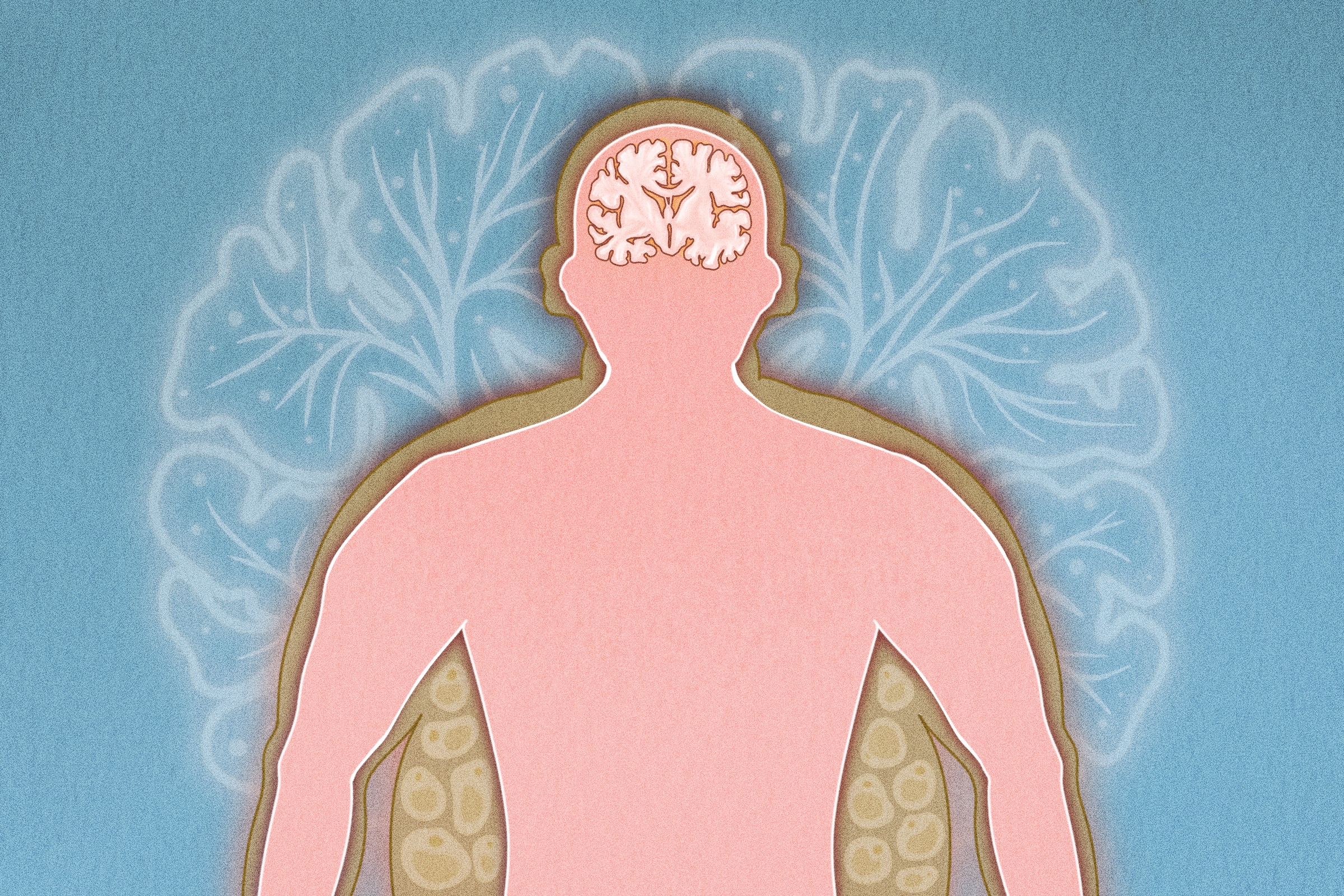In 2021, as COVID-19 rampaged across the globe, I found myself alone in a small, quiet town in Switzerland. Free from the responsibilities of cooking for my family and the noise from busy streets, I enjoyed the peaceful sounds of birds singing.
My daily routine began with breakfast at 8 a.m., typically consisting of 200 milliliters (about 7 oz.) of milk, an egg, and a slice of toast. By 9 a.m., I started work. My main task was to leverage my scientific and medical expertise to help the public cope with the COVID-19 pandemic through a weekly live broadcast on an influential TV channel.
Given the responsibility and urgency of my work, I often became so engrossed that I forgot to eat until hunger struck around 4 p.m. At that point, I usually prepared a Chinese dish: stir-fried cucumbers with eggs and rice.
After two weeks, I noticed a significant change: My weight dropped by 15 lbs, to 108 from 123, and my BMI decreased to 20.4 from 23.2.
Although eating less played a role, the primary factor in my unintentional weight loss was staying focused on my work.
Why does staying focused help with weight loss? Are there other ways to lose weight effortlessly? After researching this topic, I would like to share my findings.
The Growing Issue
Today,
one out of every three American adults is overweight. Despite efforts to combat weight issues, the incidence of obesity has significantly increased, tripling to 40 percent in 2018 from 14 percent in the 1960s.
Being overweight increases the risk of chronic diseases, including hypertension, diabetes, fatty liver, and viral infections. Consequently, obesity is regarded as a disease.
Overweight people are often advised to improve their bad eating habits, such as by eating less junk food and exercising more self-control. However, managing weight through diet and exercise is challenging in a society filled with tempting, tasty foods and countless electronic distractions.
Because of these challenges, many people are drawn to weight loss medication.
Since 2012, when the first weight loss drug, Osymia, was approved and later withdrawn because of safety concerns over cancer risks, the FDA has approved six weight loss drugs, including four for adults and children aged 12 and older.
Half of these drugs work by activating the glucagon-like peptide-1 (GLP-1) pathway. GLP-1 is a hormone that stimulates the pancreas to release insulin. GLP-1 receptor agonists (GLP-1 RAs) mimic the effects of GLP-1 to treat Type 2 diabetes and obesity. These drugs include:
- Liraglutide (Saxenda)
- Semaglutide (Ozempic and Wegovy, which are injectable medications, and Rybelsus, an oral pill)
- Tirzepatide (Mounjaro)
Other drugs work through different metabolic mechanisms to reduce food intake or absorption:
- Orlistat (Xenical, Alli): reduces dietary fat absorption by the gut
- Phentermine-topiramate (Qsymia): reduces appetite and induces a feeling of fullness sooner
- Naltrexone-bupropion (Contrave): Naltrexone is used for alcohol and drug dependence, and bupropion is used for depression and to help people quit smoking. Together, they reduce appetite and food cravings.
There are
two main concerns about these weight loss drugs.
First, many may require long-term use for sustained effects, and discontinuation could lead to weight regain. Some drugs might also affect muscle mass and fat loss and could affect nutrient absorption, so it’s essential to consider these factors when using such medications.
Additionally, ongoing research is examining whether GLP-1 RAs are linked to suicide attempts and possible connections to thyroid cancer.
For many, weight loss drugs make things so much easier. Diet restriction can be onerous, especially in today’s tempting and stressful environment. The inability to eat freely can add stress, often resulting in overeating and perpetuating a vicious cycle.
Vicious Cycle
Being overweight is not merely an issue of body shape; there are deeper, underlying reasons.
Obese people often experience chronic low-level inflammation, including inflammation in adipose (fat) tissue. Over time, this can lead to an overflow of fat and a diminished response to insulin. Consequently, fat can accumulate in tissues and organs where it shouldn’t, contributing to various health issues.
Additionally, obese people often struggle with suboptimal mental health, including nervousness, anxiety, depression, and stress.
Our body and mind are intricately connected. Negative emotions can exacerbate chronic inflammation in the body through inflammatory markers, such as interleukin-6, tumor necrosis factor-alpha, and c-reactive protein.
This complex, intertwined problem can be addressed only by fundamentally changing both the mind and body.
The Benefits of Focus
Brain biology tells us that our minds can achieve their best state when we are focused.
A study shows that even concentrating on a simple task such as washing dishes can reduce negative emotions and elevate our mood.
In one experiment by E.L. Garland from the University of Utah and A.W. Hanley from Educational Psychology & Learning Systems, 51 college students were asked to wash dishes for two hours.
They were randomly assigned into two groups. Twenty-five participants received descriptive instructions on washing procedures, such as filling the sink with water and cleaning dishes.
The remaining 26 students were taught to focus on the importance of presence and mindfulness while washing dishes, emphasizing that this task was not a waste of time or a boring chore, but a moment of life worth cherishing.
The “mindful” dishwashers experienced a 25 percent increase in the positive emotion of inspiration and a 27 percent decrease in the negative feeling of nervousness.

Participants in the mindful dishwashing group reported significantly decreased ratings of nervousness, 1.69 versus 1.23, p=0.003, and significantly increased ratings of inspiration, 2.12 versus 2.65, p=0.02. (The Epoch Times)
Besides focusing on work, mindfulness practices, such as sitting meditation, are effective ways to reduce inflammation. Scientists have revealed that hundreds of genes change their expression profiles when we meditate, shifting our bodies from an inflammatory state to a healthier one.
When we focus entirely on a task or activity without feeling bored or hungry, this state is often referred to as a “flow” state.
A Flow State
A flow state, as its name suggests, is like a river flowing naturally toward its destination. People in this state often experience minimal self-referential thinking.
This state is highly relevant for well-being and has been extensively studied.
Researchers followed 83 participants who shared their thoughts daily for four days and found significant positive benefits of flow at work. Those who felt absorbed and enjoyed their work reported feeling more energetic afterward.
Brain scientists explain that the locus coeruleus, a small brainstem nucleus important for attention, arousal, motivation, and cognitive function, is often activated during the flow state. Simultaneously, the dopamine system is also active, helping us feel optimistic, hopeful, and energized.
When we focus on tasks for a few hours during the day, we often stop worrying about weight or food control and forget the stress associated with them. The benefits include:
- Reduced stress levels
- Less time spent seeking food and eating
- Increased positivity and better sleep quality
To avoid interruptions and maintain focus, consider these strategies:
- Put your mobile phone in a drawer, set it to airplane mode, mute the sound, and close your office door to reduce external stimuli.
- Inform your friends or colleagues that this is your time to focus. Most people will understand and support you.
The same principle applies when you start relaxing: Focus on spending time with your family and friends, reading a book, or hiking in nature.
Mindset Matters
Obese people are often advised to exercise more to lose weight. But why does it work for some people and not others?
A Harvard study published in Psychological Science examined how hotel service workers’ positive mindsets or beliefs about the benefits of exercise affected weight loss.
The workers were divided into two groups:
- Informed Group: This group received a write-up about the benefits of exercise and was informed that their daily housekeeping work satisfied the CDC’s recommendations for an active lifestyle.
- Control Group: This group was not told about the health benefits of their work.
The results were fascinating, even though the actual workload of the two groups did not differ.
The informed group experienced significant improvements in body fat loss, waist-to-hip ratio, and cardiovascular health compared with the control group. After only four weeks, the workers in the informed group lost an average of 2 pounds and lowered their systolic blood pressure by 10 points.

When the workload of people in the two groups was identical, the group informed about the health benefits of daily routine work reported significant improvements in body weight, body fat, waist-to-hip ratio, and blood pressure compared to the uniformed control group. (The Epoch Times)
This study emphasizes that beyond the direct physical benefits of exercise, people’s positive mindsets or beliefs about the effects of exercise on their health are highly significant.
Positive thoughts can lead to even greater improvements in our bodies when we believe in the treatment modality, as explained in this article.
Since we’re going to eat, there are a few more practical tips to enhance our dining experience.
The Science of Food Order
Evidence suggests that starting with vegetables, followed by proteins and fats, and ending with carbohydrates can better control blood sugar and body weight.
Scientists studied 11 adults with metformin-treated Type 2 diabetes to investigate the effect of food order on glucose levels and insulin sensitivity. On the first visit, participants consumed a meal with the order of carbohydrates first, followed by protein and vegetables. A week later, the food order was reversed, starting with vegetables, then protein, and finishing with carbohydrates.
The results were significant:
- Glucose Levels: When vegetables were consumed first, mean glucose levels decreased by 28.6 percent, 36.7 percent, and 16.8 percent at 30, 60, and 120 minutes post-meal, respectively, compared with when vegetables were consumed last. Eating vegetables first was estimated to reduce total blood glucose within two hours by 73.5 percent.

For Type 2 diabetic patients, when vegetables were consumed first, the mean glucose levels were decreased by 28.6 percent, 36.7 percent, and 16.8 percent at 30, 60, and 120 minutes post-meal, respectively, compared to when vegetables were consumed last. Eating vegetables first was estimated to reduce total blood glucose within two hours by 73.5 percent. (The Epoch Times)
- Insulin Levels: Blood insulin levels within two hours after the meal were reduced by approximately 48 percent with the vegetable-first order, suggesting improved insulin sensitivity.

For Type 2 diabetes patients, consuming vegetables first and carbohydrates last resulted in a 48 percent decrease in mean blood insulin levels within 120 min post-meal, compared to the reversed order. The insulin reduction with the veggie first order suggests that this pattern may improve insulin sensitivity. (The Epoch Times)
Insulin is like money in a bank. When we eat, we use insulin, similar to making withdrawals. If we withdraw too much, the supply runs out quickly, and we might need to inject insulin, akin to borrowing money.
In this study, the group who ate vegetables first used half the amount of insulin to process the same amount of food. This approach is an intelligent way to use insulin effectively, saving for the future and promoting better long-term health.
In 2023, a study randomized 45 adults who were overweight, were obese, or had prediabetes. The experimental group received standard food counseling plus food order counseling. Compared with the control group, this group experienced a mean weight loss of 3.6 pounds and reduced HbA1c levels. HbA1c is a measure of the average glucose level in the blood over the past two to three months.
So let’s put veggies first on our plates and carbohydrates last. Moving forward, you don’t need to worry about only eating celery—you can eat the same foods but in a different order.
We can improve our eating habits by making healthier choices more visible and accessible. For example, placing vegetables and fruits on a large display plate on the kitchen counter makes these options more appealing and readily available. In the refrigerator, storing healthy foods in easily accessible locations while placing less healthy options out of immediate reach can also encourage better choices.
Promoting healthy choices in public spaces can create an environment that supports better eating habits. For instance, Massachusetts General Hospital implemented a color-coding system for food items: red for unhealthy, yellow for moderate, and green for healthy. This approach resulted in decreased sales of unhealthy items and increased sales of healthier options.
If canteens or supermarkets adopt similar methods, society could significantly benefit by encouraging healthier eating habits on a larger scale.
Final Thoughts
Unlike conventional weight loss strategies, which often involve restricting the amount of food and avoiding certain foods, changing your mindset can lead to natural weight loss.
A Chinese proverb says, “One may work hard to plant flowers, but they may not bloom; yet a willow tree grows into shade without any effort.” This saying means that sometimes, the best outcomes come from actions done without specific intent.
When I came to New York City, my friends saw me and were wowed: “Look how slim you are now! What did you do to lose weight?”
“Nothing on purpose,” I said. “I just focused on my responsibilities to help others and forgot about food.”
Similar to the students who experienced health benefits from focusing on washing dishes, the arduous task of weight loss becomes simple when our minds are focused and serene. When inner peace and joy enrich our hearts, we find ourselves in better shape, both physically and mentally.


















